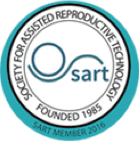Ovulation Induction
The process of using medications to stimulate ovulation in women with irregular or absent ovulation or anovulation is referred to as ovulation induction. Since it is non-invasive and more affordable than other fertility treatments, ovulation induction is often the first treatment used for infertility. Ovulation induction may be prescribed alone or paired with IVF, IUI, and a few other fertility treatments.
Good Candidates for Ovulation Induction
Women with absent or infrequent ovulation could achieve their dream of becoming mothers by undergoing ovulation induction. To determine whether a woman is a good candidate for ovulation induction, a fertility specialist will consider PCOS and other disorders that may obstruct normal ovulation, hormone levels, obesity, eating disorders, thyroid disorders, and the amount of exercise a woman performs.
Understanding Ovulation
When the ovary releases a mature egg that can be fertilized every 28 days during a woman’s menstrual cycle, normal ovulation occurs. Women who ovulate every 21 to 35 days are considered to have normal ovulation.
In the event a woman ovulates less than once every 35 days or their ovulation is unpredictable, it is called irregular. If ovulation does not occur at all, a woman has a condition known as anovulation.
Women who do not have normal ovulation will find it more difficult to conceive a child. Fortunately, ovulation induction can help women who do not have normal ovulation and increase their chances of conceiving a child.
Types of Medications Used for Ovulation Induction
There are a variety of hormone medications that are used in ovulation induction. These medications are intended to regulate a woman’s reproductive hormones and stimulate ovulation. The most commonly used medications include the following:
- Clomiphen citrate: Clomiphen citrate is formulated for women who have normal pituitary gland hormones but do not see monthly changes in these hormones.
- Aromatase inhibitors: Polycystic ovary syndrome or PCOS is a hormonal disorder that is common among women of reproductive age. Aromatase inhibitors are usually effective in women with this condition.
- Insulin-sensitizing agents: An insulin-sensitizing agent like metformin is often recommended for women with PCOS who may have prediabetes or diabetes.
- Gonadotropins: Gonadotropins promote egg development and are typically generated by the pituitary gland. This type of medication is so powerful that it requires more frequent monitoring.
Interested in Ovulation Induction? Contact Carolinas Fertility Institute
If you are wondering whether you are a good candidate for ovulation induction or have further questions regarding this treatment, we encourage you to contact us today.




